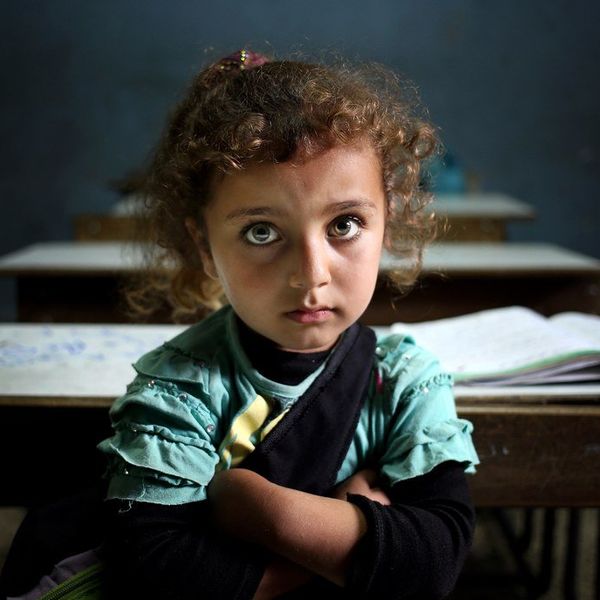Like any well-meaning, but ignorant, millennial, when I don’t understand something/am too lazy to really think about it, I turn to Google. And so when the “Harambe” meme kept resurfacing in my personal life and across social media, months after the initial occurrence, my journalistic antenna eventually, groggily surfaced and I decided to Google “What is the Harambe meme?” to take deeper look.
Firstly, a little background: On May 28, 2016, a four-year-old boy climbed into the gorilla enclosure at the Cincinnati Zoo and fell into the exhibit’s encircling moat. The enclosure’s occupant, a 17-year-old Western lowland gorilla male named Harambe, started circling the boy and eventually pulled him out of the moat. What happened next is the crux of the initial incident and subsequently spawned the infamous meme.
Zoo officials shot at Harambe with bullets instead of tranquilizers. They viewed Harambe’s behavior as potentially dangerous to the boy and thus shot to kill rather than to sedate because they feared that Harambe might negatively react to the tranquilizers—honestly, same—and endanger the boy even more. However, other eye witnesses and the Internet population, who saw the video when it was posted on YouTube, saw Harambe’s actions towards the boy—pulling him out of the water—as protective rather than malicious.
The initial video received 12.6 million views within the first 48 hours before being removed, although subsequent versions have been reuploaded. The story was also posted on reddit and a petition “Justice for Harambe” was created on Change.org. I researched the aforementioned petition, and found the most updated version. The original purpose was apparently to encourage an investigation into the home of the child who fell into the enclosure and look into perceived negligence on the part of the parents. However, the most recent update to the petition, which at the moment has over half a million signatures, claims the original intention was not to vilify the parents of the child or the Cincinnati Zoo.
The incident sparked discussions about zoo safety, improper uses of force and whether wild animals should even be in zoos. Personally, this highly professional journalist thinks zoos are a little depressing.
The origin of the meme, as pointed out by a much lengthier, smarter and more in-depth article from Vox, seems saturated in irony, because the same week that Harambe was killed, 1000 people died while crossing the Mediterranean Sea to immigrate to Europe and safety. These people, often coerced onto unseaworthy ships, were overshadowed by the Internet’s backlash to the death of Harambe. And thus, the memes that resulted are drenched into a double layer of irony: on one hand, it exemplifies those who are casual activists, rising up for causes that are not rooted in human or contemporary suffering. And on the other hand, it mocks those who would care more about a dead gorilla than a thousand dead migrants.
I think this meme’s popularity comes down to a coincidence of timing. In the last six months alone, America has witnessed unspeakable tragedies: the deaths of unarmed black men at the hands of police officers, the deaths of police officers at the hands of angry extremists, among others. The Internet has made access to news easy, and has made the ability for the public to react even easier. Facebook makes filters to mourn the latest tragedy. Hashtags spread like wildfire. For a few days, across social media, everyone seems passionate about the tragedies and call for change. However, after the initial fervor, people lose interest. They become occupied with their regular lives. They’re not passionate about the cause, they’re passionate about the passion. They’re passionate about the attention and the image of looking like an activist.
I’m certainly guilty of tweeting in a tragedy and then not always taking the time to research or understand. It’s bad and it’s something I need to be better off. And the Harambe meme, in its irony, is indicative of that: We care in the moment, but our attention spans are gnat-like. We care more about a gorilla than the loss of human lives. We’re in love with the rush. We don’t really care about the events; we care about the pomp and circumstance surrounding these events.
And that’s shitty and awful and rude.
Memes, ironically enough given the fact that half of them are dick jokes, hold an important mirror to our social media society. We focus on the wrong things, put stock in the wrong places. We have all the passion and fervor and intelligence, but it’s directed in the wrong areas. We hashtag “Justice for Harambe” because being in on the trend is easier when it’s something relatively inconsequential. It’s harder to be on the trend when the subject matter actually matters. It requires more of us to devote time and attention to things like the migrant crisis, the threats of ISIS, the issues of American police brutality. Those are icky and difficult and messy and don’t go away easily.
It’s important to care, and sometimes it is exhausting to constantly be on top of the tough issues. Sometimes I need to take a break and immerse myself in silly drama. When the KimExposedTaylorParty stuff happened, I was so happy because I just needed to focus on something not so heart-wrenching. But these issues, these difficult, tough issues, need our attention just as much as Harambe and Taylor Swift. And that’s not a sentence I ever thought I would type.





















